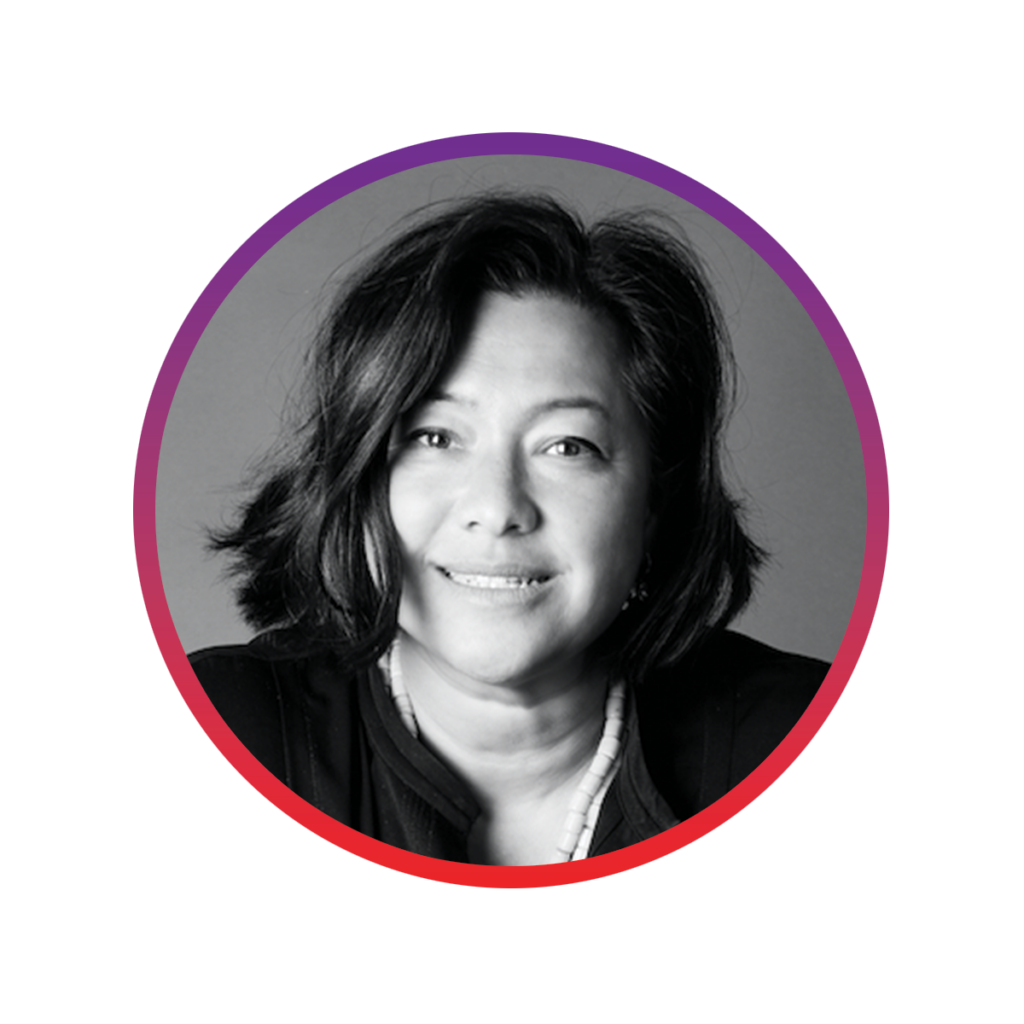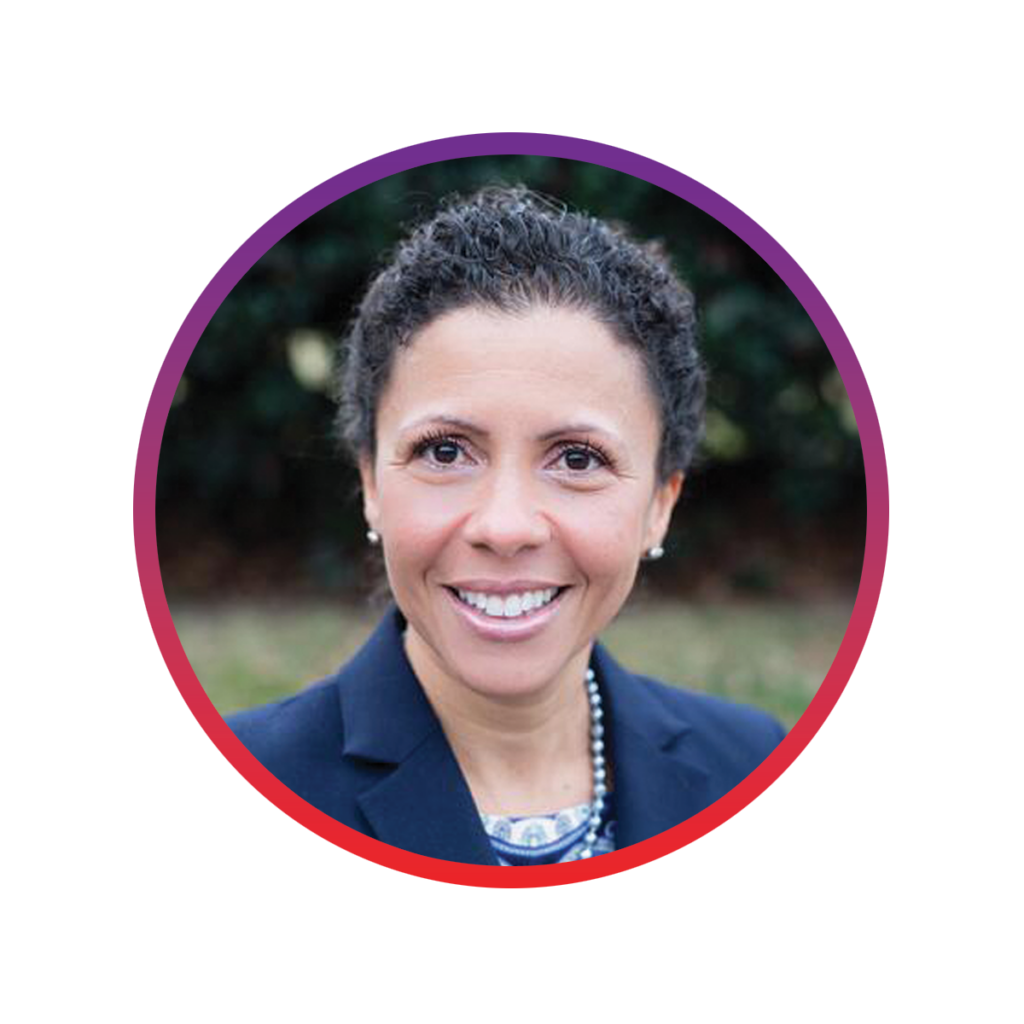In episode 69 of Teaching Channel Talks, we were joined by Scilla Andreen, an accomplished film director, and CEO of Impactful. Just in time for Mental Health Awareness Month, she and our host, Dr. Wendy Amato, dove into Scilla’s journey as a filmmaker, exploring her own mental health experiences, and the inspiration behind her films Angst, Like, Race to be Human, and Upstanders.
If you weren’t able to listen in, now you can read through this impactful discussion that breaks down the stigma around mental health and explores the experience of a gifted filmmaker.
Wendy: Scilla, you’ve done so much work in schools. You have your finger on the pulse of the things that matter. Talk to me about how you’ve prioritized your work and your projects.
Scilla: Oh boy, people always ask me how I choose the topics and people for my films. It’s a great question, really. I mean, I pick things that are interesting and curious to me, especially if I don’t know much about them but others seem to be confused or distressed about them. That’s how I came up with the mental health collection, starting with “Angst.”
A friend suggested making a movie about mental health for schools, but I didn’t know anything about it and felt like nobody would want to talk about it in a group setting. Sadly, my friend died by suicide, and I realized how important it was to make the film. At first, people were afraid to watch it, but eventually, schools began to use it and found it had a therapeutic effect on the community. This led me to make more films on related topics, like social media addiction and online bullying, and the latest one, “Race to be Human,” which explores having productive conversations about race and racism.
Wendy: I haven’t heard you talk about the sequence of the films this way. Some people may look at the offerings and feel like you were working to address pressing issues and you are, but each film really led into the next one in such a purposeful way you had to continue and it makes me curious to think about what’s coming next. Is there anything you want to preview?
Scilla: I’m not the type of person who goes around saying, “This is important, let’s talk about it.” Instead, I let conversations happen organically, and I try to listen as much as I talk. My husband often teases me about how much I talk, but I’m always attuned to how others are feeling. This approach has served me well in my work creating films about mental health literacy.
For example, when I made Race to be Human, a film about having productive conversations across racial divides, I learned about systemic racism and how it affects people’s lives. This experience got me thinking about other factors that impact our mental health, such as money. That’s why I’m working on a program that addresses how money impacts our self-esteem, relationships, and overall mental well-being. In addition, I want to create a financial literacy program because only seven states currently require it in high school. By providing financial education, we can better equip young people to navigate this important aspect of life.
Finally, I’m also making Health 101, a film that addresses the five verticals from the World Health Organization: sleep, nutrition, movement, stress and mindfulness, and human sexuality education. I had no idea how important sleep was, no idea! When Paul Rudd was training for Ant-Man they asked him, “What’s your workout routine and what do you do?,” and he goes, “Sleep.” The number one most important thing besides what you eat and the workouts, is sleep. So anyway, I’m excited to put those programs together and share them with the world.
Wendy: When you talk about your films, you always mention companion resources or programs or ways to go beyond the film itself. Talk to me about why that’s important.
Scilla: It’s not just about what I want or my impatience to get things done. It’s about what people are asking for. Educators, parents, mental health experts, and even students have shared with us what they need in addition to our films. They want materials to promote events, discussion guides, and prompts to facilitate conversation about the films. So, we developed the Creative Coping toolkit to meet their needs.
My goal was to gamify talking about our feelings and to normalize conversations about mental health. By doing so, we can move from holding everything in, to operating upstream on the preventative side. The toolkit is available to educators, students, and families to make mental health support more accessible. We’ve even made the Angst edition of the toolkit available to every public school in California, but it’s not enough to just make it available. We need to keep people engaged and exploring it. That’s why we’ve made it fun, knowing that educators are already taxed and have a huge responsibility.
Wendy: One of the things that has always impressed me about your work is your attentiveness to the different populations that connect, and meeting them with resources that are right for them. Whether it’s the family, a student, a teacher, a school leader or an administrator, everyone comes to the topics with a different sphere of influence and a different scope of responsibility. And you’re thoughtful about that.
Scilla: First of all, thank you. And that has not had anything to do with me. That is everybody who takes the time to share with us what they need. You know when you see those consistencies of demand, we have no choice but to make what they’re asking for.
Wendy: I appreciate that you’ve talked about your own learning and your own growth through each of the projects—is project the right word?
Scilla: Yeah, project, program, endeavor.
Wendy: I feel like you have modeled for others that even you, even Scilla Andreen has learning curve when coming into a program or project where you’ve said you’re not the expert at the beginning—although I’d say you’re pretty close now—but you’re willing to go through the work to learn and to provide for others around you. We don’t do it for ourselves and then we can at least learn from you that we do this for the people around us.
Scilla: It is interesting. Delving into topics I know nothing about is really scary. But making “Angst” taught me something new about myself: I have textbook social anxiety. I used to think I was just a little bit less than everyone else, or that I was a little bit broken. I never told anyone, for fear of being ousted. But now I realize that I struggle with things as small as figuring out what to wear to an event. It’s silly, really but to cope, I’ve developed a few hacks. For example, at social events, my deal with myself is that I just have to show up. I grab something to eat, something to drink, and go to the bathroom. If I talk to anyone in the process, that’s a bonus. I’ve learned tools like tapping and met people who have told me I’m not broken. Now I’m not afraid to ask stupid questions, even if it means being vulnerable. I still struggle sometimes, but I have my toolkit of meditation, breathing, snapping, and more.
Wendy: Thank you for modeling for others and thank you for your honesty. You create a space where people can open up a bit. Now, I’d love to talk about being non-white in America right now, especially as we look at the film Race to be Human and find the language to share about ourselves or ask questions about others. You’ve changed conversations for a lot of people. Is that personal?
Scilla: When I made the film, I didn’t know what to expect. I was seeking clarity for myself, but now that it’s done, everyone thinks I’m an expert on the subject. Truthfully, I’m not. I recognize the importance of language and have even removed two words from my vocabulary: “try” and “can’t.” Instead of saying, “I’ll try to lose weight,” I say, “I will lose weight.” This shift has empowered me and eliminated any victim mentality. Words hold power, and they create our reality. This was one of the significant lessons I learned while making Race to Be Human.
People ask me how to ask someone about their ethnicity without causing offense. I suggest connecting with the person on a human level first, discussing the weather, or a recent news story. Asking about ethnicity is acceptable, but timing is everything. It’s essential to approach the conversation with love and curiosity. I didn’t know what microaggressions were until recently, even though I experienced them throughout my life. Now, I am hyper-aware of my own language and encourage my team to do the same. It’s fascinating to see how ingrained certain words are in our language, and by becoming aware of them, we can make a big change.
Wendy: We could probably start a long, long list of things for people to sit and think about how they use words and phrases. It’s as though it’s just the air we breathe, with so little awareness and zero reflection.
Scilla: Right, and I don’t think that people are out there trying to bring harm. I’m not naive, yes, there are people who do that, but I think in general the average person just doesn’t realize the impact of their words.
Wendy: I’ve been on the receiving end of questions like those and just as you’re describing, timing really does matter, and making a connection first should be the baseline for all things.
Scilla: Through my programs and films, I have learned that the most important connection one can make is with oneself. When I made “The Upstanders,” I came to the realization that we are all bullies, even if we don’t recognize it at first. I used to think that I was immune to bullying, having been bullied for being Chinese in an all-white community. But then I looked in the mirror and saw the way I talked to myself. The things I said to myself were things I would never say to another person.
For instance, when I went on the news to promote the Creative Coping Toolkit, I started criticizing myself for not sleeping enough, not drinking enough water, and not preparing enough. But then I stopped and thought about what I would say to another person in my shoes. I would encourage them and remind them that they are going to do great. I realized that we need to train ourselves to be kind to ourselves first so that we can model how we want to be treated and how others should treat themselves. Only then can we treat others with kindness and compassion.
Wendy: I’m going to bounce back to when I was talking about you as a busy person and clarify that you can be busy and still focused. That’s very different from being busy in a frenetic way or bouncing around with no priorities. You work with purpose. You produce with direction. Your priorities seem so community centered. It’s really a significant thing that you’re bringing to, I’ll say, school communities because that’s where we go first, but really the community. I’m grateful for what you’re doing.
Scilla: Oh thank you, I really appreciate that! I realized my life’s purpose about five years ago. Before that, it was always, what do I want to do with my time? What do I want to devote myself to? And I realized that in order to think about what that is, I had to understand why I was here. I am very clear that now my purpose in life is to let people know they matter and to let people know they belong.
I think that’s something I wanted my whole life because I always felt like I didn’t belong, or that I was broken. I wanted to be invisible. I didn’t want to even matter. I wanted to be unnoticed. Now, I don’t think about that so much, but I know the feeling of when you are genuinely included and you do feel a sense of belonging, or that you’re valued in some way. What I would love to help provide for other people is a way for them to have that feeling.
This conversation has been edited for length and clarity, but you can still listen to the full episode of Teaching Channel Talks and find accompanying learning resources here.
Our Guest

Scilla Andreen is CEO & Co-Founder of IMPACTFUL(Open Link in new tab) and an award-winning Producer, Director, and Emmy nominated Costume Designer. She has produced topical films such as Angst, LIKE, The Upstanders, and RACE to be Human, often tackling the tough topics of race and racism, anxiety, and the effects of social media on our mental health. A mother of 6 and resides with her husband Eric in Seattle WA. She has spoken on numerous panels at Sundance, SXSW, Women in Film, etc., and is on a mission to change the world with film.
Our Host

Dr. Wendy Amato earned her Master’s in Education and Ph.D. in Curriculum and Instruction from the University of Virginia. She holds an MBA from James Madison University. Wendy began teaching in 1991, has served as a Middle School Administrator, and still teaches at UVA’s School of Education. She has delivered teacher professional development workshops and student leadership workshops in the US and internationally. Wendy and her family live near Charlottesville, Virginia.






